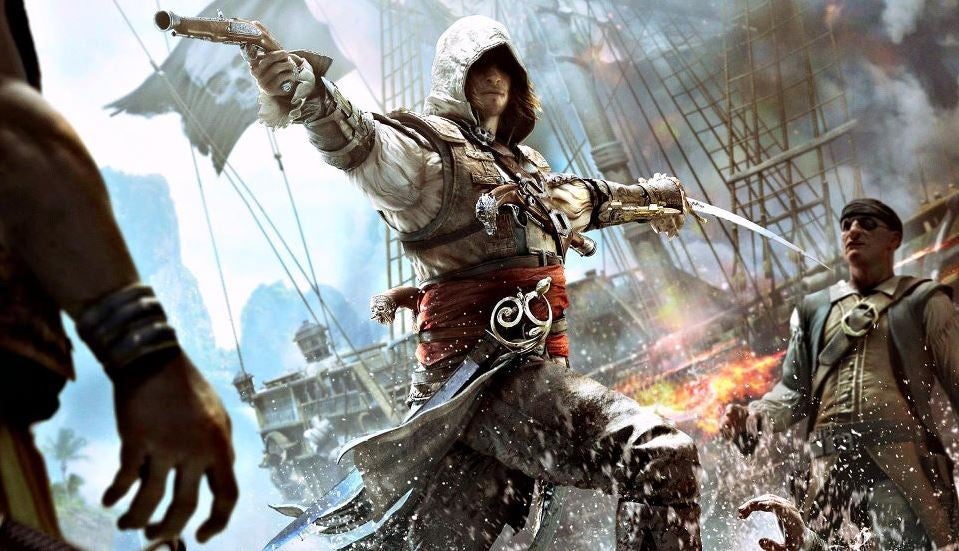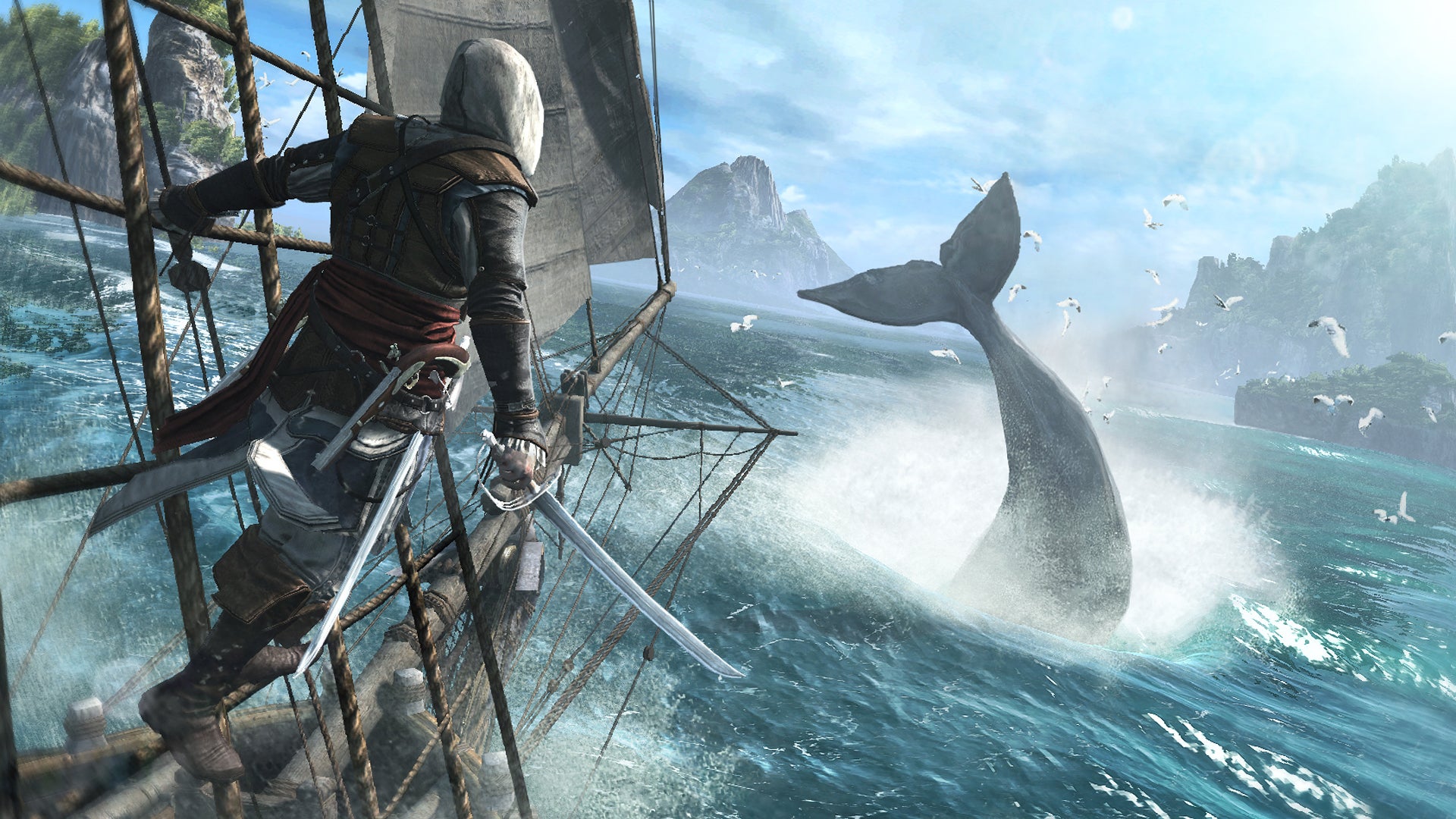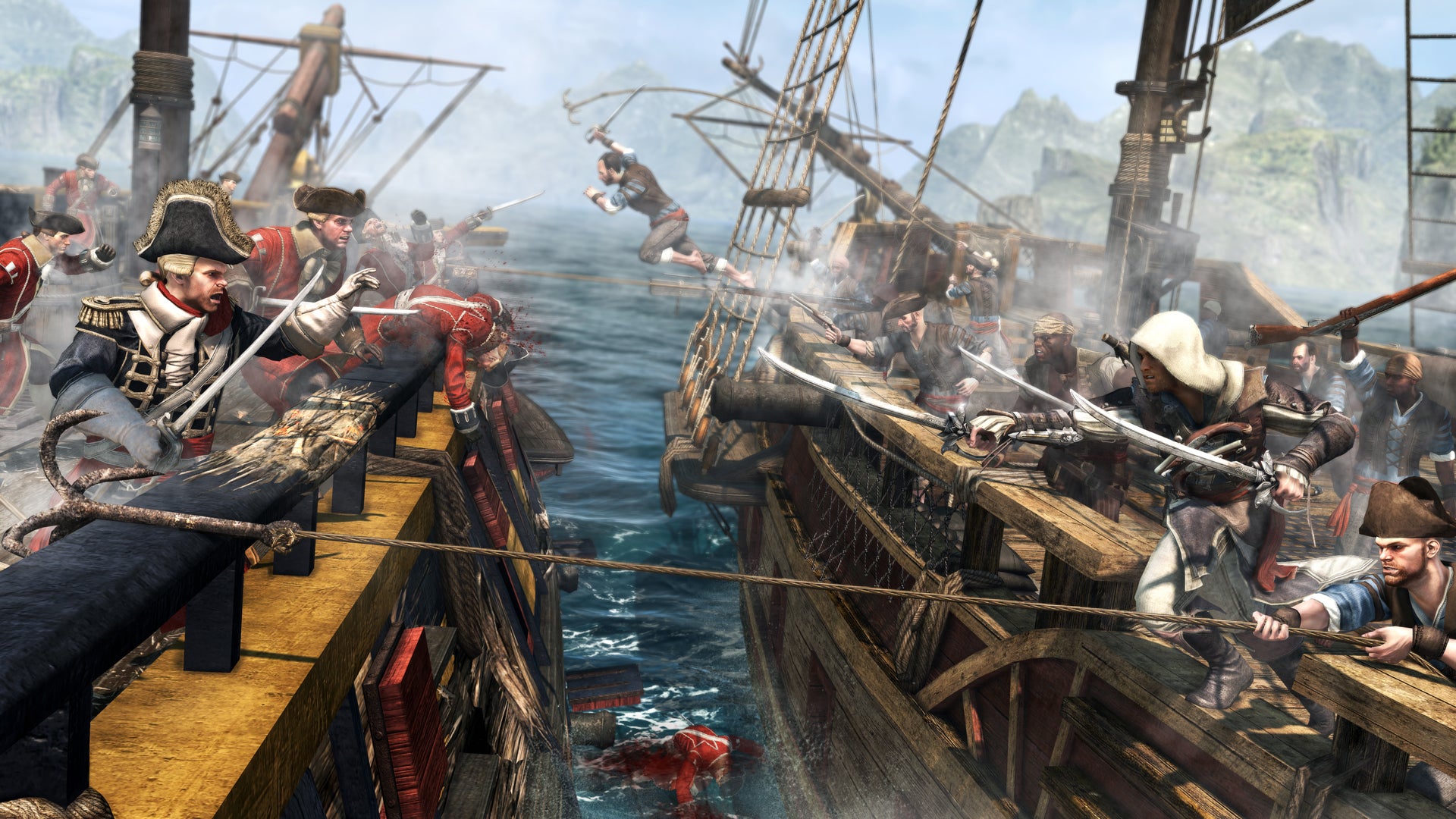Enter, then, Black Flag. Eschewing the heady streets of Italy or Constantinople, and removing itself as much as possible from the frigid wilds of Frontier America, this new game promised something different – something gamers hadn’t really seen since Sid Meier’s Pirates! (and wouldn’t see again until Sea of Thieves). Black Flag – as you’d probably guess from that evocative moniker – promised a sea-faring pirate adventure. It promised treachery, plunder, terror on the high seas. It promised rum. It promised to correct the course of the series after Assassin’s Creed 3 ran aground. And you know what? It delivered on all those promises. There’s almost nothing about Assassin’s Creed, at that point, that Black Flag didn’t either rethink or drastically improve upon. Even the world – compared to what had come before – was bigger, richer, more dense and authentic. Given that the majority of the map was water, that’s a testament to just how much life Ubisoft crammed into the ramshackle buildings of the pirate dens (and how much personality it evoked from the more… permanent… fortifications). Better yet, the gameplay was given an overhaul – now, there weren’t just assassination missions, fetch quests, and go-here, do-this escapes to keep you occupied. Far from it. You wouldn’t be a pirate without a vessel, and Black Flag took great pride in showing you how fun it is to take to the water and engage with Privateers and Bandits, shunting their ships into the briny deep and raiding their booty for yourself. It showed you that raiding an island teeming with defenses is fun, actually, and makes you feel like the most accomplished of all the salty sea dogs in the land when you finally take down a fort and raid the resources inside. It showed you that The Jackdaw – your erstwhile ship – could be just as much of a character than any NPC. And that you’d probably come to care for it even more. Better yet, in Edward Kenway, Ubisoft found a protagonist that could live up to the well-worn shoes left behind by Altair and Ezio Auditore. In discarding the notion that you had to be an assassin in the majority of gameplay scenarios, Black Flag elevated the moment-to-moment experience entirely. Sure, you could take on missions like “Sugarcane and its Yields” like you were a 1900s hitman – skulking through the plantations and snatching the British away, one by one, until there was only one colonising bastard left to confront. But you could also board other captain’s ships as a swashbuckling nightmare, brandishing your sword and pistol as the night sky is illuminated by the flashes of musket fire. You could storm a sea fort with your crew – a berserker off the ocean, chaining melee and gunfire together in a storm of steel and lead to become the dread pirate of legends. Perhaps the best thing about Black Flag, though, is how it decides to discard the pirates of fiction for the most part, and carve its own path with more realistic, honest depictions of the era. I won’t ruin anything here for those of you that haven’t played it, but Black Flag wears its heart on its salt-crusted sleeve, and confidently tells a sad story about the people of a place and time that history has – continually and repeatedly – treated with injustice. So join me, why don’t you, in redownloading Assassin’s Creed 4: Black Flag on your PlayStation – join me in setting sail for distant lands, taking deep breaths of that salty air, gazing out of crystal clear oceans, bellowing sea shanties with me hearties, and uncovering a tale of intrigue and deception on the 18th Century Caribbean seas. Assassin’s Creed 4: Black Flag is out today on PS Plus Premium.


